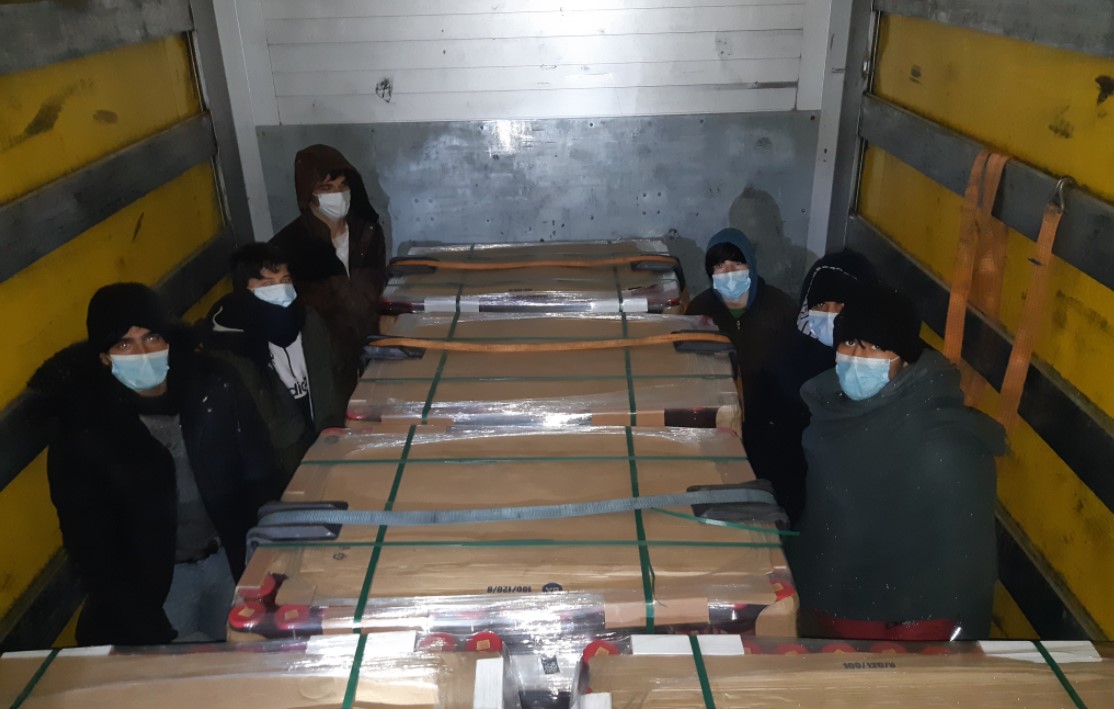The Czech Republic is preparing for a possible next wave of migration, with police officers responding by increasingly inspecting trucks and vans. At the same time, detention facilities for detained migrants are ready to double their capacity, while the Ministry of the Interior has prepared scenarios that it will implement according to the number of incoming migrants.
Czech Interior Minister Jan Hamáček admitted that he would order resuming border controls if necessary. Politicians are worried not only because of the Afghan crisis, but also due to the situation on the Belarusian border with Lithuania, Latvia, and Poland.
“After the experience with the migration wave in 2015, the Ministry of the Interior developed model plans that count on all sorts of actions in the event of a massive migration wave, including closing the Czech border or strengthening the capacity of facilities for illegal migrants,” said Interior Minister spokeswoman Hana Malá.
“The police, in cooperation with international partners, continuously monitor the situation and take appropriate measures. In the long run, for example, in connection with illegal migration, there is increased control in border areas, especially on the borders with Slovakia,” she added.
“Everyone is worried about what will happen now due to the situation in Afghanistan and the Taliban taking control over the country. We are already seeing a growing number of detained migrants, and individual detention facilities for refugees are preparing for the next possible wave of migration in order to have enough staff and enough equipment and to be ready to expand its numbers of beds in case of a larger number of people,” a senior state official confirmed.
For example, last year, a total of 1,203 foreigners ended up in three facilities for detained migrants, compared to 666 in the first seven months of this year.
“The management of migrant facilities in these three facilities has a capacity of 552 beds and is able to immediately expand the capacity to 916 beds, if necessary. At present, the capacity is about one-third full,” says Jan Piroch, a spokesman for the administration of migrant facilities.
While last year’s numbers of migrants were affected by the pandemic, their number began to grow last July, and from January to the end of June this year, the foreign police detained 5,325 people, mostly from Ukraine, Moldova, Afghanistan, Georgia, and Vietnam. Another 515 people, 434 more than a year ago, were detained by police during illegal transit migration, especially in cars. Most of the detainees were heading for Germany.
Berlin is gradually tightening controls. The police mainly check vehicles from the Czech Republic or Austria, stopping them a few kilometers from the state border.
German politicians are also talking about the possible introduction of border controls.
“We will do everything we can to prevent the uncontrollable influx of refugees into Europe. In the case of an emergency, we will tighten border control measures. Not everyone who wants to come to our country is allowed to come,” said German Interior Minister Horst Seehofer.
The last day of August also saw a special meeting of European Union interior ministers in Brussels on a single topic: security and migration in the context of the situation in Afghanistan.
“Czechia has brought its citizens and local Afghan co-workers to safety. Now, we must ensure that tensions from the area do not spill over into the next wave of migration. Our priority is to do everything possible to prevent a crisis at the EU’s external borders,” said Hamáček in Brussels.
At the meeting, the interior ministers also reportedly discussed the possibility of providing countries neighboring Afghanistan with €600 million to help with migrants.
According to Minister Hamáček, it is essential that the EU does not send mixed signals or create vain hopes for migrants.
“The EU must make it clear that journey to Europe is not the answer, and we will not support people smugglers,” he stressed.
Title image: Czech police find six migrants from Afghanistan hiding in a truck semi-trailer among the pallets of jam. They got to the Czech Republic with the help of smugglers and their target was France and Germany (The Police of the Czech Republic / Twitter)






